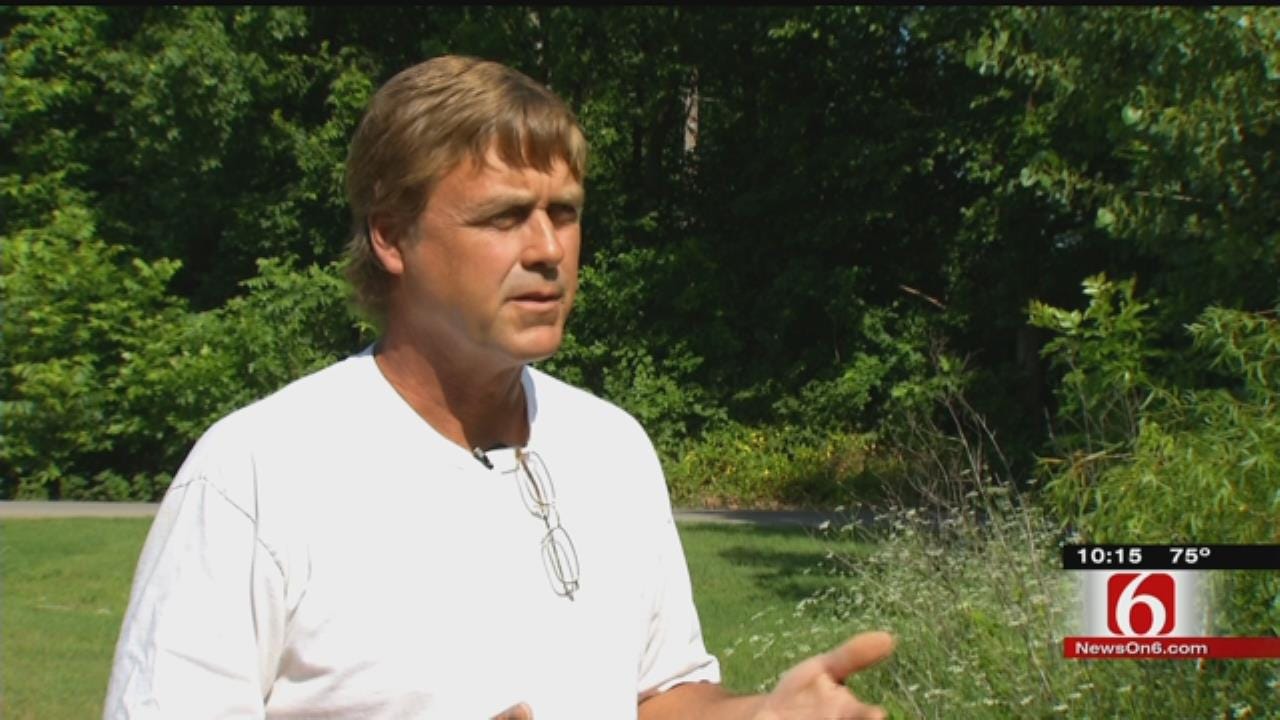Saving Oklahoma's Bees
Oklahoma's seen the biggest decline of commercial honeybees in the nation, and the decline of the bees has even spurred a White House initiative to reverse it.Friday, July 10th 2015, 12:10 am
Oklahoma's seen the biggest decline of commercial honeybees in the nation, and the decline of the bees has even spurred a White House initiative to reverse it.
These days, at the end of White House staff meetings, President Obama is said to ask, "What are we doing about the honeybees?"
Whether it's those European commercial bees or the 4,000 varieties of North American native bees, something's disrupting them, and all our pollinators.
For the most part, it's us, but we’re also the ones that can help out and if you like to eat you should.
Going to work with Greg Hannaford means donning a different kind of business suit; it means donning a bee suit.
He says after a few stings, it’s time to put on his gear. “Ten stings in ten minutes will change that, but that very rarely happens,” he says.
Since leaving the sting of running his own construction business to raise honeybees, Hannaford has gained great admiration for his new employees for their amazing work ethic and quality of product.
“Local Oklahoma honey, to me, is one of the most remarkable honeys in the world,” says Hannaford.
With 300 hives scattered across the region, including here at the Tulsa Zoo, Greg harkens refers back to childhood chewing gum to describe the sweet melding of meadows going on inside the tiny factories. He says his honey is like Juicy Fruit in a jar.
“The variety of nectars that come together to produce this honey, to me, it creates one of the best tasting honeys in the world,” he explained.
But we keep losing the wild meadows filled with flowers that produce that nectar to make that honey and the pollinators who rely on them for food, and whom we rely on for ours.
Spraying too much pesticide and herbicide are main contributors to the issue. Nursery plants sold with pre-loaded pesticides and great sweeps of industrial agriculture are also factors.
Whether it's bee, butterfly, bat or bird, when we lose our pollinators, we lose the link that makes it possible for us to feed ourselves.
“It's a hard time to be a honeybee and it's a hard time to be a beekeeper,” says one Kerr Center representative.
That's why some hardy souls from the Kerr Center journeyed on a Saturday to Poteau for a bright and early briefing on all the reasons we've lost so many of our pollinators, and to hear why Oklahoma has had the greatest die-off of commercial honeybees in all the nation.
“It would be like you having, being covered in ticks the size of dinner plates. And they suck bee blood,” says the representative.
David Redhage has made sure the outside grounds are a place of wonder. “We have a native resource here, and all we have to do is plant the right plants and they thrive,” he says.
Whether it's the prairie meadow around the pond or the more formal beds around the buildings, Redhage works to show off the simple, beautiful, steps we can all take to help give bees, butterflies and bugs a boost with the native plants that thrive in the chaotic climate of Oklahoma.
“We may say I've only got a small little flowerbed in front of my house but you add everybody on the block doing that and suddenly you've got a tremendous addition to the landscape,” he explained.
The message is one Amanda and Michael Lane have heard, and work to bring to life at home in Oklahoma City.
“I'm sure my neighbors don't like that I don't pull my dandelions up. I leave [th]em because our little girls pull [th]em up,” said Amanda.
That's okay because nature doesn't care for neatness.
Your expanse of Bermuda grass and foundation yews may please your eye, but the way these guys see it, yours is a house of horrors.
“There's nothing there for the bees. I mean, it looks nice; it's pretty to our eyes, but to the bees it's a desert. It might as well be the Sahara desert. There's just nothing there,” explained Hannaford.
But, when we've got natives like Purple Prairie Clover, there’s no reason to choose the Sahara desert.
Click Here for more information on where to find Gregg's honey and that of other local beekeepers, nurseries and organizations that work to support pollinators and local and mail-order nurseries.
More Like This
July 10th, 2015
September 29th, 2024
September 17th, 2024
Top Headlines
December 14th, 2024
December 14th, 2024
December 14th, 2024
December 14th, 2024












